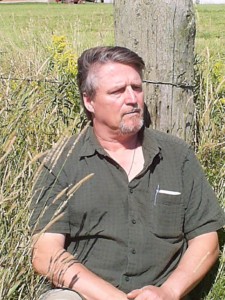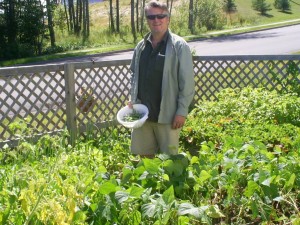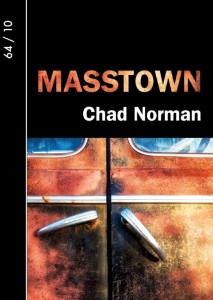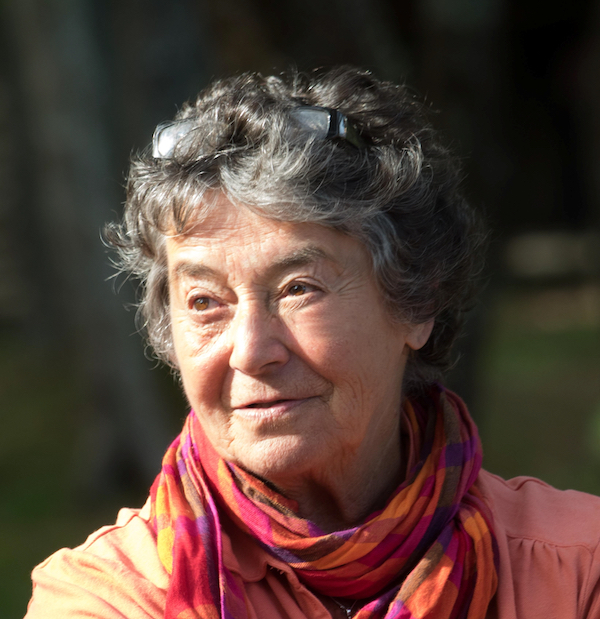 Meet Chad Norman. He recently completed his 15th book of poetry, titled Masstown, which celebrates the once-thriving dairy community just west of Truro, in Colchester County. Through his grandparents, Bert and Gladys, the poems lead the reader back onto the farm. But not just any farm. Masstown is a poignant collection showing memory at work, revealing “the way it was,” and lives lived on this multi-generational farm.
Meet Chad Norman. He recently completed his 15th book of poetry, titled Masstown, which celebrates the once-thriving dairy community just west of Truro, in Colchester County. Through his grandparents, Bert and Gladys, the poems lead the reader back onto the farm. But not just any farm. Masstown is a poignant collection showing memory at work, revealing “the way it was,” and lives lived on this multi-generational farm.
Chad Norman has been writing and publishing for 30 years. He’s a member of WFNS, the League of Canadian Poets, and is a former member of TWUC.
What is it about poetry that captures your interest? When did you start writing poetry, and why?
At one time I set my sights on becoming a musician/songwriter [and] began to hang around with “garage bands.” My friends, the band members would invite me to their garage gigs, to play, and quaff back their father’s apple and grape wines. Once I, and they, realized I was a “word man,” requests came for lyrics. At first, I never thought my lyrics would catch anyone’s attention, but I kept on writing. Eventually I came to realize words were very important, and contained great power if placed in a successful way on an empty piece of paper. I came to know quickly the difference between lyrics and poems, but I certainly didn’t believe I was writing either, especially poems. When I did, around the age of 23-24, what captured me was how poetry could accomplish so much with so few words. And, without a doubt, I knew it was all about Imagination, Feelings, and how to capture Time.
My poems evolve through what I call disturbance. Because I have to chase a paycheque by holding down a clock-punching job, when the rattle of the words begin, they have come to disturb that mundane pursuit. Another reason I was chosen to write and honour poems, is that I despise money. Hey! Don’t get me wrong, the disturbance can always lead to a few bucks, I don’t have a problem with that, but there is something about living and surviving as a poet which has very little to do with the “filthy lucre.” In terms of process, in most cases I have a few words jotted down in the notebook I pack around, or a very limited idea or image at the beginning. So, yes, many poems unfold, reveal, try to deceive me, or stand strong in confidence, as I write, and I get down what is in most cases a draft.
Do you have role models? Poets or people you’ve loved/learned from in the past?
Throughout the years many poets taught me in many ways. Mainly it has been the women. I know this comes from when I was a boy and my mother took me to tea parties. I sat there and listened to the women tell their stories, which were filled with emotions, harsh truths, and clear paths on how to feel. And I have learned a lot from, and appreciated visits with Dorothy Livesay, Gwen MacEwen, Anne Marriot, P.K. Page, Pat Lowther, and Anne Szumigalski, Al Purdy, Joe Rosenblatt, Fred Cogswell, Louis Dudek, Irving Layton, Doug Jones, Patrick Lane, to name a few. (Note: all Canadians!) Poets of today would include Paul Zann, Peter Sanger, Laurence Hutchman, Phil Thompson, Penny Ferguson, Carmelita McGrath, Leone Gom, and Susan Musgrave.
I would love to hear your views about finding the right publisher, and what’s involved.
Oh, boy! Being a poet, it comes down to, not the “right” publisher, but any publisher. At present it is a tough and draining game. I have dealt with a range of publisher and editors over the years. Some decent and helpful, others complete idiots. But, fortunately, during the past year and a half, I have found the publisher for me. We have enjoyed nothing but mutual respect. So at the moment, I feel like I am “in,” so to speak. At least, I feel as if I can approach my publisher with enthusiasm in regard to my next title, instead of feeling unconnected, and simply sending a manuscript out, led by nothing but hope. One must be prepared to really stand up for one’s manuscript! How do I know this? Because my latest book, Masstown, was rejected by numerous presses … it took me four years to sign a contract!
 What is your biggest challenge as a poet?
What is your biggest challenge as a poet?
The biggest challenge is finding the time and belief to keep on writing. At this point in my life, being 55, I admit there are dips in my faith, meaning I wonder if people actually care about poems, or poets. Over the years I have had little support from the ones I needed it from most. This has prevented me from celebrating my path as a poet. But, time and again, I overcome, due to a relentless ability to persevere. I learned a long time ago it will be up to me if anything happens for my poems, for my books.
What is the biggest reward?
Being able to read the poems aloud! And when someone comes up to you and says, “This is my first poetry reading, I never imagined I would have liked it so much” this is very satisfying. Also, when someone you’ve sold a book to tells you what they enjoyed about it. I always enjoy seeing a poem accepted by (and appearing) in a publication, and I really smile when a cheque comes with the complimentary copy!
Chad welcomes questions, so fire away in the comment box. Let’s get a dialogue going!


He gives superb readings! If I lived closed, I’d be there!
Happy to hear this! If I were closer, I’d be there!